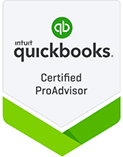The Inventor & Audits
All healthcare inventors, particularly those who report deductible losses year after year, need to be concerned about IRS audits.
Indeed, if, like many medical and dental inventors, you incur losses each year, you probably have a higher chance of being audited than business owners who report profits. This doesn’t mean you shouldn’t take all the deductions to which you’re legally entitled. But it does mean that you must understand the rules and be able to back up your deductions with proper records.
If you’re one of the many inventors who – as of yet – earns no money at all from inventing, you’ll have no taxes to pay on your inventing business. Only people who make money need to pay taxes. Likewise, no taxes will be due if your inventing expenses exceed inventing income. However, this doesn’t mean you need not be concerned with taxes. On the contrary, inventors who lose money have just as much to fear from the IRS as those who earn substantial profits.
A Hobby or Business?
Business losses from inventing can be very valuable. You can use them to offset your income from other sources – for example, a job or investment income – and thereby reduce your tax liability for the year. However, the IRS and other tax agencies may closely scrutinize your deductions. To protect yourself in the event of an audit, you should:
- Be able to show the IRS that your inventing activities are a business, not a hobby
- Keep accurate records of your expenses
- Have a legitimate legal basis for your deductions
Are you participating in a hobby or business? Hobbies are great! They’re relaxing, entertaining and can lower your blood pressure. But if the IRS considers your inventing to be a hobby – not your business – you will have a major problem. That’s because a hobbyist can only deduct inventing expenses from inventing income. If there is no income, there’s no deduction. And an inventor in this position can’t carry over the deductions to use them in future years when income may be generated. The deductions are lost forever.
In summary, inventors who are deemed to be hobbyists are in the worst of all possible tax worlds. So, if you’re looking for a hobby, try stamp or coin collecting; but make inventing your business. In other words, you may mistakenly presume that inventing is your business only to learn, four or five years later, that the IRS has a different opinion. In that case, you would be disallowed all deductions made during those years and required to pay any miscalculated taxes and penalties.
The Ultimate Tax Shelter of Today!
If you qualify as an inventing business, you’ll become one of the pampered pets of the tax code, receiving the best possible tax treatment. You can deduct inventing expenses from other income you earn, such as salary from your job or your spouse’s job, or interest and investment income. This can be done even though you don’t expect to earn any money from inventing for many years. Moreover, the tax law gives inventors who are in business special treatment, making their tax situation even better than that of most business people.
Your New-Found Friend, Internal Revenue Code Section 174:
IRC Section 174 is the inventor’s best tax friend. Congress enacted IRC Section 174 to encourage inventors and companies engaged in research and development of new technologies.
IRC Section 174 is deceptively simple. It says that “a taxpayer may treat research or experimental expenses which are paid or incurred by him during the taxable year in connection with his trade or business as expenses which are not chargeable to capital account.” The phrase “not chargeable to capital account” is key: It means that the entire amount of these expenses may be currently deducted from an inventor’s gross income. Only expenses for research and experimentation (R&E) are deductible under Section 174. Research and experimentation is all the work you do as part of your inventing business to discover information that helps eliminate scientific or technical uncertainty concerning the development or improvement of an invention, patent, process, prototype, formula, technique or similar product.
In other words, you must work to develop or discover something new in the laboratory or experimental sense. You can’t, for example, claim a Section 174 deduction to develop an invention that has already been patented or to repeat something that has already been done. Nor can Section 174 be used to claim deductions to discover information that is not scientific or technical in nature – for example, marketing or sales information.
So long as you’re doing R&E, it makes no difference if you’re attempting to develop a particular invention or are engaged in a general research project. Moreover, your research and experimentation need not be successful – that is, end up as a patented invention or salable product – to gain tax benefits.
Keep in mind, you must claim your Section 174 deductions in the first year R&E expenses are incurred. If you fail to claim these deductions on your Schedule C for the year in which they were incurred, you must ask the IRS for permission to use Section 174 in subsequent years.
An Invention Worth Pursuing:
Most inventors, even those who are sophisticated business people, do not fully appreciate just how much money they can save with tax deductions. Only part of any deduction ends up back in your pocket as money saved. Because a deduction represents income on which you don’t have to pay tax, the value of any deduction is the amount of tax you would have had to pay on that income had you not deducted it. So a deduction of $100,000 won’t save you $100,000 – it will save you whatever you would otherwise have had to pay as tax on that $100,000 of income. Assuming you are in the top brackets this year, the government is paying for almost half of your business expenses. This is why it’s so important to know all the business deductions you are entitled to take – and to take advantage of every one!
You Need IRC Basis to Deduct Your Loss:
Finally, the IRC Rules on Basis basically say you may only deduct your loss to the extent you funded the business personally. This means that taking a business loan and co-signing, which many inventors do, does not create basis for deducting your losses. There are numerous ways to create basis within your company to ensure you recieve the tax benefits you are looking for.
We offer a FREE initial consultation for business owners. Call us today at 800-477-5857 and ask for Glenn Kempa, CPA, regarding our accounting services for physicians and our tax and planning services. We serve the communities of Manhattan, New Hyde Park, Manhasset, Hauppauge, Syosset, New York, Garden City, Great Neck and nearby areas.






